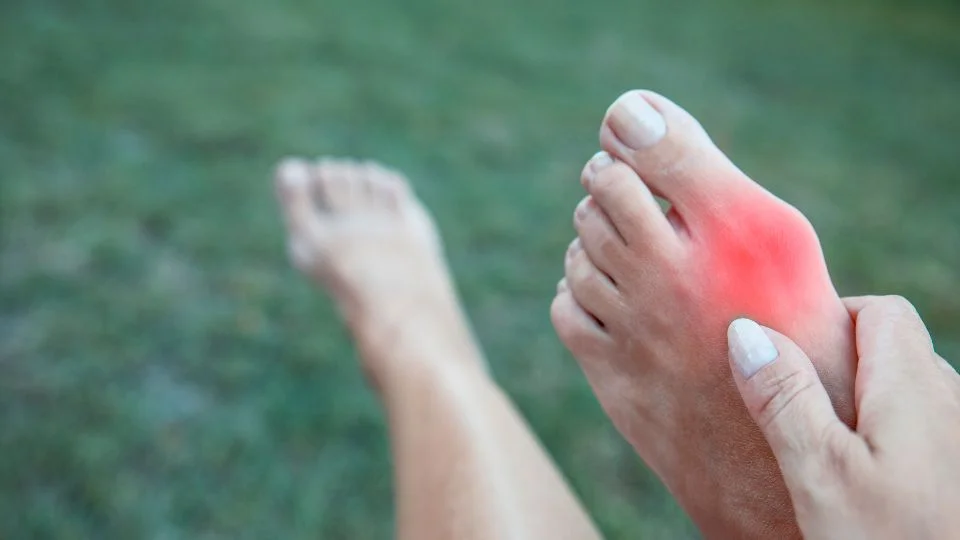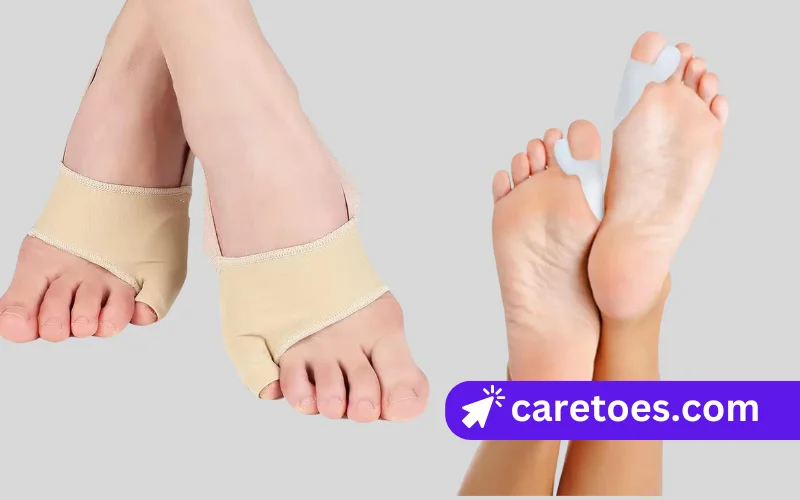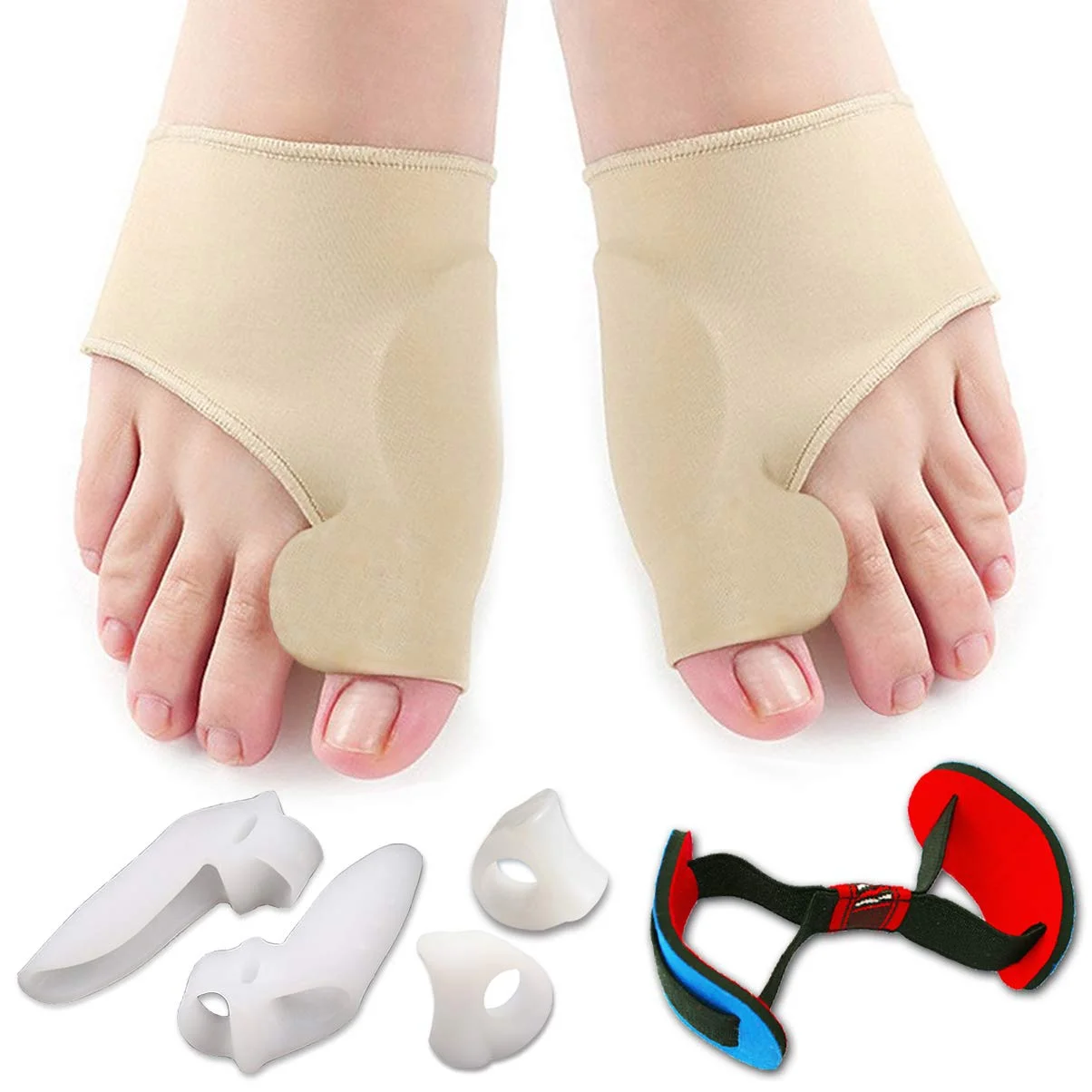Bunions can cause ankle pain. The misalignment in the foot can lead to strain on the ankle.
Bunions are bony bumps that form at the base of the big toe. They result from a misalignment of the toe joint. This misalignment can cause discomfort and pain. Over time, the altered gait due to bunions may strain the ankle.
This can lead to ankle pain and instability. People with bunions often experience difficulty walking. Proper footwear and medical treatment can help alleviate symptoms. Early intervention can prevent further complications. Consulting a healthcare professional is essential. They can provide guidance on managing bunions and related pain. Addressing the issue promptly ensures better foot health.
Table of Contents
Introduction To Bunions And Ankle Pain
Bunions are bony bumps that form on the joint at the base of your big toe. They are often painful and can lead to more issues. Ankle pain is discomfort or pain in the ankle region. People often wonder if there is a connection between the two.
Identifying Bunions
Bunions are easy to spot. Look for a bump on the side of your big toe. Your toe may lean towards the others. Redness and swelling are common. Bunions can make wearing shoes painful. They often develop due to genetics or poor footwear choices.
Link Between Bunions And Ankle Discomfort
Bunions can change how you walk. This change can lead to ankle pain. Your body tries to balance itself, causing strain. This strain can affect your ankles, knees, and even hips. Proper footwear and orthotics can help reduce pain. See a doctor if the pain persists. They may suggest surgery for severe cases.
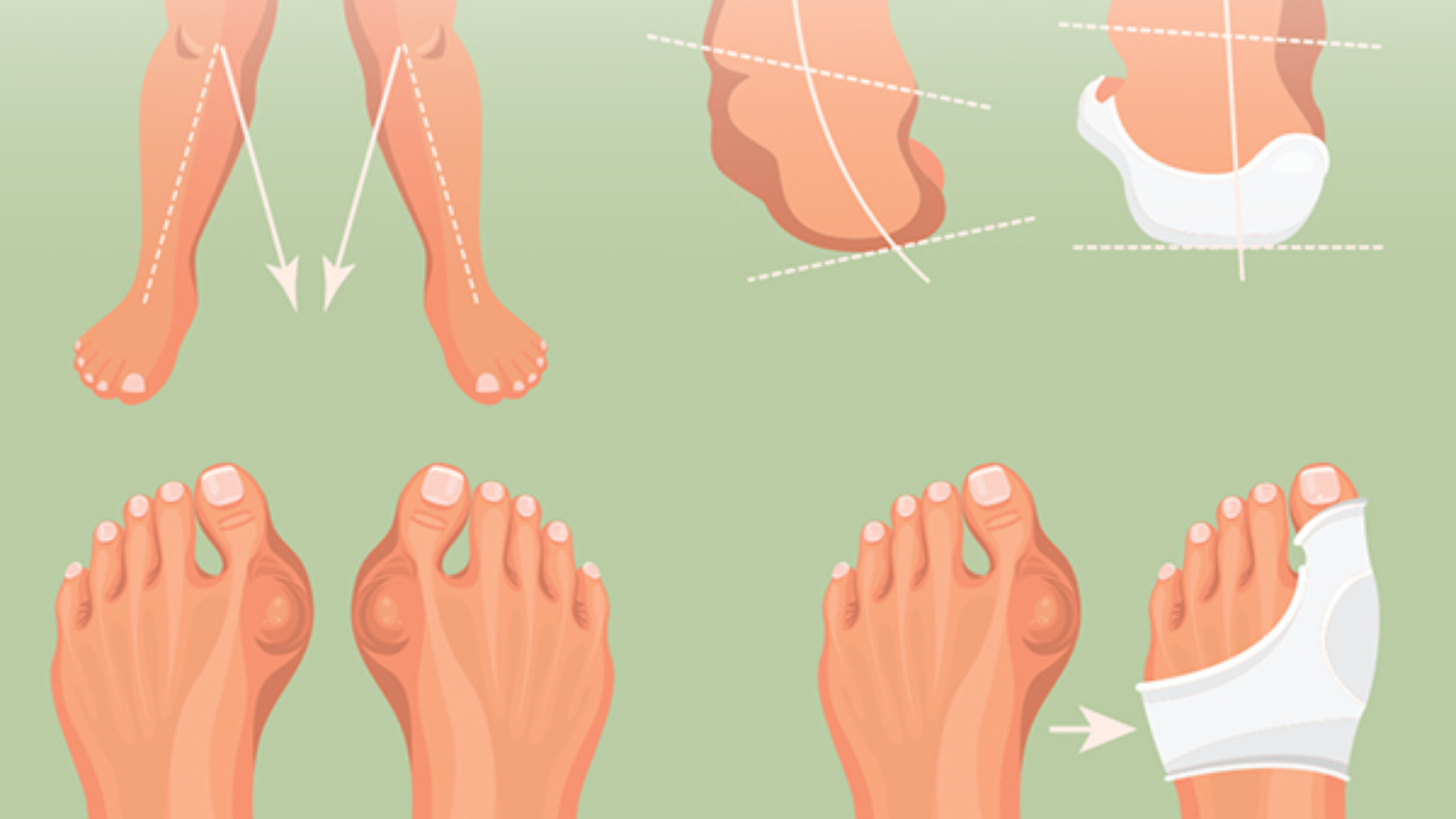
Credit: mynewfeet.com
Anatomy Of The Foot And Ankle
The foot and ankle have many bones and joints. These include the talus, calcaneus, and metatarsals. Joints in the foot help with movement and balance. They also support the body’s weight. The ankle joint connects the foot to the leg. It allows the foot to move up and down. Proper function is crucial for walking and running.
Foot deformities can affect ankle stability. Bunions are a common foot deformity. They change the shape of the foot. This can lead to pain and imbalance. The ankle may become unstable. This can increase the risk of injury. Proper footwear and orthotics can help. They provide support and relieve pain. Surgery may be needed in severe cases.
Bunion Development: Causes And Progression
Bunions form due to genetic predisposition. Wearing tight or narrow shoes can also cause bunions. Foot injuries might lead to bunion development. Arthritis can contribute to bunion formation. Improper foot mechanics increase the risk. Standing for long periods impacts bunion growth.
In the early stage, the big toe starts to lean. A small bump appears at the base. The second stage shows more noticeable swelling. The bump becomes painful and red. In the third stage, the big toe overlaps the second toe. Walking becomes difficult. The final stage causes severe foot deformity. Surgery may be needed to correct the issue.
Ankle Pain: Symptoms And Causes
Many people experience ankle pain due to various reasons. Sprains and fractures are quite common. Arthritis can also cause pain in the ankle. Sometimes, tendinitis makes your ankle hurt a lot. Flat feet may lead to discomfort in the ankle area. Wearing improper shoes can worsen the condition.
Bunions might lead to changes in your walking style. This can affect your ankle. The altered gait puts stress on the ankle joints. This stress can cause pain over time. Inflammation from bunions may also spread. It can affect nearby areas like the ankle. Proper care of bunions may help reduce ankle pain. Consult a doctor if pain persists.
Biomechanical Effects Of Bunions On Gait
Bunions change the way you walk. They force your foot to tilt. This tilt leads to an uneven gait. Each step becomes awkward and uncomfortable. The body tries to compensate for this change. It often leads to additional strain on the ankles. Muscles and tendons work harder to keep balance. This extra effort can cause fatigue and pain.
Bunions shift pressure away from the big toe. This means more weight on the smaller toes and ankle. Over time, this pressure can lead to ankle strain. The ankle may swell or hurt during daily activities. Poor foot alignment affects the entire leg. This misalignment can spread pain up to the knees and hips. Proper footwear and orthotics can help. They offer support and reduce pain.
Investigating The Connection: Bunions And Ankle Pain
Bunions can change the way you walk. This may lead to ankle pain. Studies show that bunions alter foot mechanics. Altered foot mechanics stress the ankle. Clinical studies confirm this connection. Many patients with bunions report ankle pain. The alignment of the foot is crucial. Misalignment often causes discomfort. The degree of pain varies among individuals. Medical experts find this connection significant.
Many people with bunions experience ankle pain. Real-life accounts support this. Experts believe bunions cause a chain reaction. This affects the ankle. Testimonials confirm these findings. Foot specialists often see this issue. Patients report relief after bunion treatment. Proper footwear can help. Medical advice is crucial for long-term relief. Always consult a healthcare professional.
Management Strategies For Bunions And Ankle Pain
Bunions can cause a lot of pain. Wearing comfortable shoes helps reduce this pain. Padding and taping the bunion can also provide relief. Over-the-counter pain relievers help too. Ice packs can reduce swelling and pain. Orthotic devices correct the foot’s position. Regular stretching exercises keep the foot flexible. Physical therapy strengthens foot muscles.
Surgery may be needed if pain is severe. A surgeon removes the bunion. This helps realign the toe. Recovery takes a few weeks. Physical therapy may be needed after surgery. Follow-up visits ensure healing is on track. Surgery risks include infection and stiffness. Always discuss all options with a doctor.
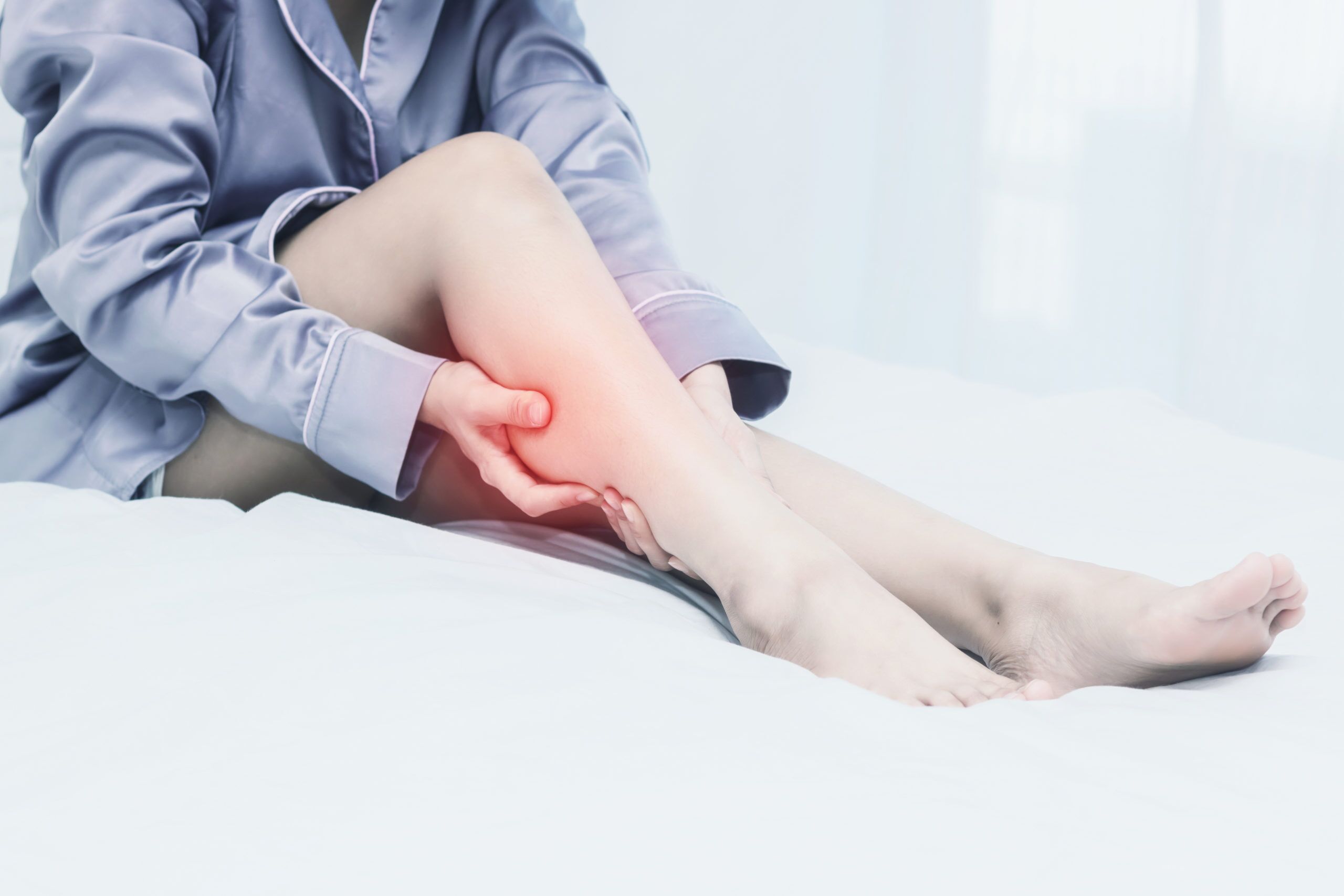
Credit: thebunioncure.com
Preventative Measures And Foot Care Tips
Wearing the right shoes is important. Shoes should be comfortable and well-fitted. Avoid shoes that are too tight or too loose. Choose shoes with a wide toe box. This gives your toes room to move. Arch support is also important. It helps in reducing strain on your feet. Look for shoes with cushioned soles. They absorb shock and provide comfort.
Simple exercises can strengthen your feet. Toe stretches help in keeping your toes flexible. Foot rolls using a tennis ball can relieve tension. Orthotics can provide extra support. They are inserts for your shoes. Orthotics help in aligning your feet properly. This reduces pain and discomfort. Always consult a doctor before starting exercises or using orthotics.
When To Seek Professional Help
If you have constant ankle pain, see a doctor. Swelling and redness are also signs. Difficulty walking is another reason. If your pain worsens, get help. Sudden ankle pain needs attention too.
Choose a doctor who knows about bunions. A podiatrist is a good choice. Ask for recommendations. Check reviews online. Look for a specialist with experience. Make sure they listen to your concerns. Good communication is key.

Credit: www.floridaortho.com
Conclusion: Empowering Patients Through Knowledge
Understanding the link between bunions and ankle pain can empower patients to seek effective treatment. Educated decisions lead to better health outcomes and improved quality of life.
Summarizing Key Points
Bunions can cause ankle pain. They change how you walk. This change can stress your ankle. Healthy feet are very important. Treat bunions early to avoid more pain. Wear good shoes to protect your feet. Talk to a doctor for help.
Encouraging Proactive Foot Health
Take care of your feet every day. Check your feet for any problems. Exercise to keep your feet strong. Stretch your feet to stay flexible. Eat healthy foods to keep your bones strong. Visit a foot doctor if you feel pain. Good foot care helps you stay active and happy.
Frequently Asked Questions
Can Bunions Cause Pain In Other Parts Of The Body?
Yes, bunions can cause pain in other parts of the body. They may lead to discomfort in the knees, hips, and lower back due to altered gait and posture. Proper footwear and medical treatment can help alleviate these issues.
Can Bunions Cause Walking Problems?
Yes, bunions can cause walking problems. They lead to pain, discomfort, and difficulty in finding proper footwear. This can hinder mobility.
Can Bunions Affect Your Legs?
Yes, bunions can affect your legs. They may cause pain, discomfort, and lead to altered walking patterns. This can result in leg strain, muscle fatigue, and joint issues. Prompt treatment can help alleviate these symptoms.
What Kind Of Pain Do You Get With A Bunion?
Bunion pain typically manifests as a throbbing or aching at the base of the big toe. It may worsen with activity.
Conclusion
Bunions can indeed cause ankle pain due to altered foot mechanics. Addressing bunions early can prevent further complications. Proper footwear and medical consultation are crucial. Don’t ignore bunion-related discomfort. Taking proactive steps can lead to better foot and ankle health.
Prioritize your foot care to maintain overall well-being.

